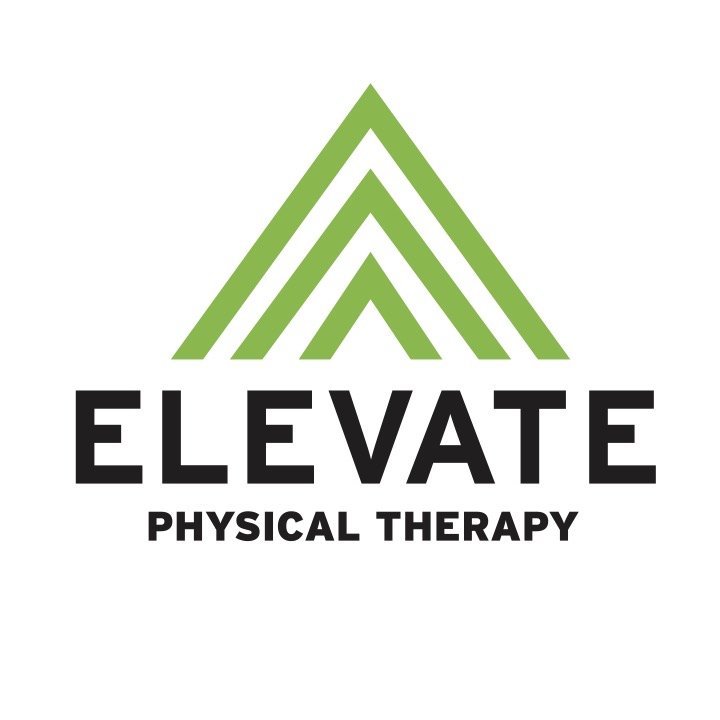Skip the New Year's Resolution!
Every year around the holidays the thought of a “New Year’s Resolution” probably crosses your mind. If you’re like many, you hit January 1 and think, “Here we go!” You’ve got your meals prepared to replace the holiday sweets, your workout gear ready for the gym, and schedule organized for success! Surprisingly, 80% of people fail to reach their New Year’s Resolutions. The number one reason why? Not making specific, sustainable changes. As a Physical Therapist, I help people make sustainable changes in their health.
Deciding to drastically change every aspect of your physical health and nutrition on January 1 is difficult to maintain, especially when you have a family to take care of. So, this year, I challenge you to make small goals instead of one big resolution. And, why not make these something the whole family can do for fun together?
Start With Small Goals.
There needs to be a gradual transition into making a sustainable change. Try taking the elevator instead of the stairs or take a walk on your lunch break. Achieving these small goals will help you find success and sustainability for a long-term change. You can have a great impact on your family as a positive role model regarding physical activity and nutrition, and they are likely to follow your choices.
Make It a Family Goal.
To engage your family, try replacing at least one hour a week of screen time for everyone with a fun family activity like playing basketball, going on a walk, ice skating, or signing up for a 5k! Getting your kids involved in small goals for physical activity can even help them in school. The CDC reports “Students who are physically active tend to have better grades, school attendance, cognitive performance (memory), and classroom behaviors (on-task behavior).”
Schedule Physical Activity Together.
It is important to make your goals a priority and block off time in your schedule. Much like other activities in our busy lives, if it isn’t on the schedule, it won’t happen. This also gives you a great opportunity to interact with your family without other interruptions like cell phones, tablets, or meetings.
Make Nutrition a Priority
Studies show that if adults stick to a healthier diet, so do the children in their lives. Try to eat meals together at home and at the table whenever possible. Children that eat regular meals with their family are less likely to have excess sugar and caloric intake. Get the whole family involved in eating healthy by helping plan the grocery shopping and preparing a meal.
Make It Fun! Kids that are exposed to fun physical activities at a young age are more likely to maintain a healthy body weight and develop motor skills they will use into adulthood. The more fun your kids have with physical activity, the more likely you both are to stick with it.
Article featured in BH Parent Winter 2019 magazine
About the Author
Dr. Rhianna Wickett, Physical Therapist, graduated from the University of South Dakota (USD) with a Doctorate of Physical Therapy. She is also a Certified Strength and Conditioning Specialist through the National Strength and Conditioning Association and an EMT. While at USD, Dr. Wickett researched the effects of various treatments including manual therapy and exercise on trigger points, which is a common cause of pain within the shoulder girdle. She has also completed The Otago Exercise Program: Falls Prevention Training, an evidence-based fall prevention certification. Her clinical studies emphasized Women's Health, Neurological and Vestibular Conditions, and Orthopedics. She graduated with a Bachelor of Science in pre-medicine from the South Dakota School of Mines & Technology after completing two years of Industrial Engineering education. She is passionate about providing each patient individualized care backed by the latest research and educating patients about their condition to make lifelong changes. She also has completed continuing education in women's health physical therapy to treat a wide range of conditions relating to pelvic floor health throughout the lifespan, including pre/post-natal conditions, incontinence, prolapse, sexual dysfunction, pelvic pain. In her free time, Rhianna enjoys spending time outdoors with her husband, son, and dog Zippy. You may contact the author with questions at Rhianna@ElevatePerformanceSD.com.



